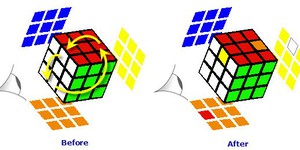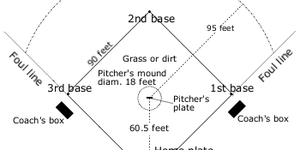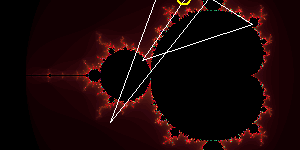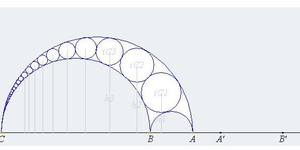Eleventh Grade, Pure Mathematics Science Projects (10 results)
Wikipedia defines mathematics as "the study of quantity, structure, space and change." With a definition like that, it's easy to see why math is often called "the language of science." Math is essential for analyzing and communicating scientific results, and for stating scientific theories in a way that is clear, succinct, and testable.
|
Select a resource
Sort by
|
You might think that one sure-fire way to keep your computer safe from hackers is to disconnect it from the internet entirely. But did you know that even without internet, a computer can transmit data using light, sound, vibrations, or even heat? In this project, you will investigate how a spy or hacker can steal data from an "air-gapped" computer that has no internet connection. You can even use a smartphone equipped with a sensor app to demonstrate how the data can be picked up by a nearby…
Read more
Featured
Have you heard that garlic powder is supposed to inhibit the growth of bacteria? Which do you think would make a better disinfectant: a solution of garlic powder or a solution of bleach? This project shows you a straightforward way to compare the effectiveness of different disinfectants (or other antimicrobial agents), by measuring zones of inhibition on a culture plate.
Read more
If you're the kind of person who has taken apart your Rubik's cube in order to grease the inside parts so it will move more smoothly, this could be a great project for you. We'll show you three sets of move sequences that accomplish specific rearrangements of the cube. Can you devise a way to solve the cube using only these three move sequences?
Read more
New
If someone asks you to draw a picture of a doctor, lawyer, or engineer, what first pops into your mind? The race and gender of the person you imagine might be shaped by your personal life experiences, such as whether you have family members in those professions, or what representations of them you have seen on TV or online. What do you think will happen if you ask an artificial intelligence (AI) program to generate the picture instead? Will pictures generated by AI reflect the true real-world…
Read more
Have you ever wondered how playing in a certain stadium affects how well the athletes perform? Major League Baseball (MLB) is played in ballparks that have their own individual quirks when it comes to the exact layout of the field. How an individual ballpark affects player performance, which is known as ballpark effects, is heavily investigated in the field of baseball. To name just a few parks and their different traits, Fenway Park (the long-time home ballpark for the Boston Red Sox in…
Read more
Although fractal images can be intriguingly complex, fractals are more than just pretty pictures. In this project, you'll explore the mathematical properties of the famous Mandelbrot (illustration on the Background tab) and Julia sets. You'll learn about how these images are generated, and about the relationship between the Mandelbrot set and the Julia sets.
Read more
New
Artificial intelligence (AI) programs can now generate photorealistic pictures of people who do not exist in the real world. How can you tell if a picture is of a real person or a fake, AI-generated person? What features of the picture do people use to decide whether the face is real or AI-generated? In this project, you will explore these questions as you ask volunteers to look at both real and AI-generated pictures of human faces.
Read more
How do you turn a 2-dimensional piece of paper into a 3-dimensional work of art? Origami, the classical art of Japanese paper folding, is loaded with mathematical themes and concepts. What are the common folds in origami, and how do they combine to create 3-dimensional structure? Can you classify different types of origami into classes based upon the types of folds they use? Can you show Kawasaki's Theorem, that if you add up the angle measurements of every other angle around a point, the sum…
Read more
Math is used by many different types of scientists to model phenomenon and evaluate data from an experiment. By building mathematical models scientists can understand how different physical, chemical, and biological processes are affected by different variables. The most important tools are: making a graph to give a visual representation of the relationships between your variables and making an equation to give a way of computing the relationships between your variables. Find a source of data,…
Read more
A fractal is, "a rough or fragmented geometric shape that can be subdivided in parts, each of which is (at least approximately) a reduced/size copy of the whole" (Mandelbrot, 1982). There are many different fractal patterns, each with unique properties and typically named after the mathematician who discovered it. A fractal increases in complexity as it is generated through repeated sets of numbers called iterations. There are many interesting projects exploring fractal geometry that go beyond…
Read more
Here's a project that will teach you about math as you follow some of your favorite players or teams. You'll be comparing day-to-day performance with long-term averages, and trying to determine if the "streaks" and "slumps" over shorter time periods are due to random chance or something else. When you've finished, you'll have a better understanding of some important concepts in statistical analysis and baseball.
If a player goes 0-for-20, does that mean anything? Using probability theory,…
Read more
What makes a winning team? Getting all the best players? Good coaches? Good chemistry? This project will show you how you can use math to help you test your hypothesis about what makes a winning team.
The Pythagorean relationship is a fundamental one in sports: it correctly predicts the records of 98% of all teams. But in 2% of cases, it fails. Why does it fail? Find teams that deviated substantially from their expected Pythagorean record (this information is available for baseball teams…
Read more
|
Explore Our Science Videos
Video: Winding Coil
How to Make Elephant Toothpaste
Explore the Wet Sand Effect – STEM activity













